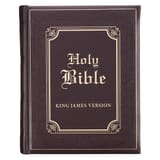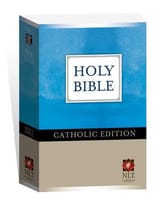>>24464877
>Could you tell me about other pre-1769, post-1611 spelling changes?
Sure, so from 1611 to 1628, one person held a monopoly on the rights to print the KJV, which he did for a profit. He didn't do a fantastic job at eliminating typos in his printing press, but he did try. There were various printings made in those first years, all by the same person. Some amount of effort was apparently made to fix the typographical errors made in the first edition, but sometimes new ones appeared elsewhere.
In 1628, Cambridge University was given permission to print the Authorized translation of 1611 (also known as the KJV), and they did a much better job at correcting typos and making it more readable. Although they also printed the Bible in other years, they made two major revisions to the KJV in 1629 and 1638. It is known that they hired several of the original translators to help with proofreading the 1638 edition. These Cambridge editions helped improve the reputation of the KJV from its early editions, which were disliked for being riddled with typographical errors. It wasn't until after the English Civil War, sometime around 1650, that puritans gradually started using the KJV instead of the Geneva Bible, due to its slowly improving reputation as a high quality work.
The 1629 edition used U, V, and J normally, added apostrophes and overhauled some of the italicized text to make it more consistent. There were some significant errors that were not corrected until 1629, such as the phrase "and yet he shall not find it" that was missing in Ecclesiastes 8:17, which was probably the worst mistake of the pre-1629 editions. Most likely, the phrase had been in the master copy that the translators gave to the printer in 1611, but he just failed to copy it into the printing plates. Most changes were very minor, like the word "mountain" in Song of Solomon 4:6 having been misprinted as "mountains" until 1629. Looking at the older English translations like the Geneva Bible, we see that it had always been "mountain." Similarly for "Gideon" misspelled as "Gedeon" in Hebrews 11:32. Numerous minor errors like this were corrected in the 1629 edition.
Similar for the 1638 edition. A few noteworthy corrections include "take thee balances" in Ezekiel 5:1 (instead of the erroneous "take the balances"), and "he ran" in Mark 5:6 (instead of "he came," another likely printing error). As usual, the Geneva Bible had already been correct in these places, indicating that the master copy of the 1611 translation probably had these readings, but they became messed up in the printing plates of the first edition. Fortunately, the later revisors caught errors like these.
Apart from the two Cambridge revisions of 1629 and 1638, many minor errors were corrected and subtle changes to things like punctuation in other editions that were printed throughout the 17th century. Most of this was eventually rolled into the 1769 edition.






